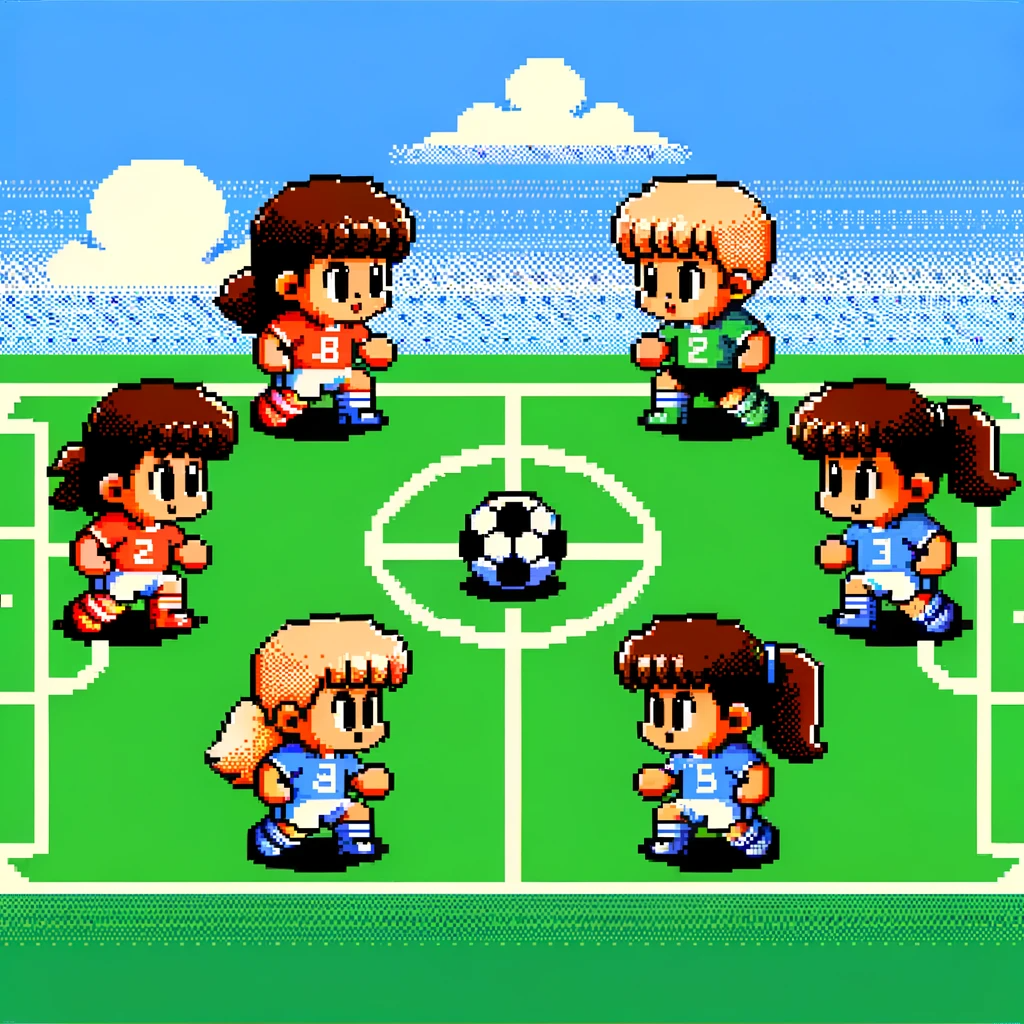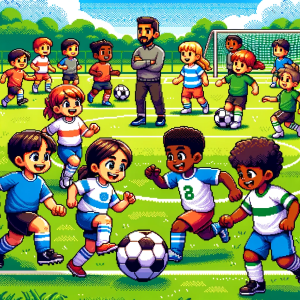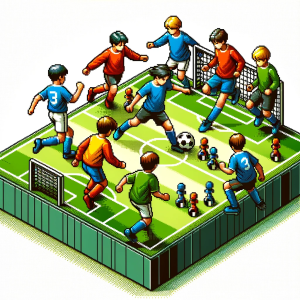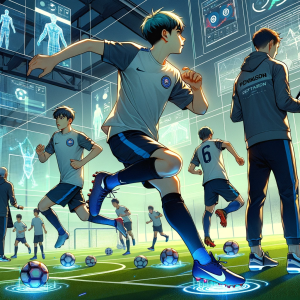
Enhancing Soccer Skills: A Review of Coaching Strategies and Player Development
Soccer requires coaches to constantly evolve their training methods. The systematic review Perceptual-Motor and Perceptual-Cognitive Skill Acquisition in Soccer: A Systematic Review on the Influence of Practice Design and Coaching Behavior dives deep into this topic, offering insights for coaches and players alike.
The Essence of the Study:
The study, found in Frontiers in Psychology, systematically examines the impact of different coaching methods and practice designs on soccer players’ skill acquisition. Focusing on both perceptual-motor skills (like ball control) and perceptual-cognitive skills (such as tactical understanding), the review analyzes 34 articles comprising 35 individual studies. These studies explore various coaching methodologies, ranging from traditional repetition-based approaches to more innovative, self-exploration techniques.
Key Findings: Coaching Methodologies
- Differential Learning and Non-linear Pedagogy: These approaches emphasize the importance of variability and self-organization in training. Encouraging players to explore different techniques and solutions in representative game scenarios, these methods aim to develop players’ technical and tactical skills holistically. The studies suggest that such methodologies can be effective, particularly in enhancing creativity and decision-making skills.
- Traditional Repetition-based Approaches: While these traditional methods also show improvements in players’ technical skills, their impact on actual game performance is less explored. This gap highlights the need for further research to understand how well these skills transfer to match situations.
Implications for Soccer Coaching and Player Development
The review underscores the necessity for soccer coaches to integrate a variety of training methods. This ‘blended toolkit’ approach enables coaches to adapt to the diverse needs of players, considering their age, skill level, and specific learning goals. The key is to strike a balance between structured skill development and fostering creativity and tactical understanding through game-like scenarios.
Advancing Player Development
To maximize the effectiveness of training, coaches should consider the following:
1. Incorporating Variety: Enhancing Adaptability and Engagement
- Variability in Training: Introducing different types of drills and scenarios keeps players engaged and adaptable. This could include varying the size of the playing field, using different types of equipment, or modifying game rules during practice sessions. For instance, playing on a smaller pitch can improve players’ speed of thought and close control, while larger spaces may enhance endurance and spatial awareness.
- Adjusting Training Intensity and Focus: Alternating between high-intensity drills and more strategic, low-intensity sessions can help in developing both physical fitness and mental acuity. This variation not only aids in preventing burnout but also caters to different aspects of player development, such as stamina, speed, and strategic thinking.
- Individual and Group Challenges: Tailoring challenges to individual player needs while also fostering team dynamics can be beneficial. For example, personalized drills that focus on a player’s specific weaknesses, combined with group activities that emphasize team tactics, can create a well-rounded training experience.
2. Focus on Game-Realistic Situations: Bridging Practice and Performance
- Simulating Match Conditions: Incorporating drills that mimic actual game scenarios helps players apply their skills under conditions similar to real matches. This includes practicing set-pieces, engaging in small-sided games, and replicating pressure situations. Such practice not only develops technical skills but also teaches players how to apply these skills tactically during games.
- Decision-Making Drills: Creating scenarios where players must make quick decisions under pressure helps in developing their game intelligence. This could involve drills that require rapid changes in strategy, reacting to unexpected situations, or adapting to different team formations.
- Integrating Position-Specific Training: Tailoring certain aspects of training to the specific demands of a player’s position on the field can lead to more targeted skill development. For example, defenders could practice reading the game and intercepting passes, while attackers could focus on creating and exploiting space.
3. Balancing Technical and Tactical Training: Creating Versatile Players
- Combining Skill Development with Tactical Insight: While mastering technical skills like passing, shooting, and dribbling is crucial, understanding when and how to use these skills in a game setting is equally important. Coaches should integrate technical drills with tactical exercises to teach players the strategic application of their abilities.
- Scenario-Based Tactical Exercises: Engaging players in exercises that require them to think tactically, such as playing out specific game scenarios or analyzing match footage, can enhance their understanding of the game. This helps players learn not just what to do but why certain decisions are made in specific contexts.
- Feedback and Analysis: Providing players with feedback, both during and after drills, can significantly enhance learning. This can include video analysis sessions where players review their performance and understand the tactical implications of their actions on the field.
Concluding Thoughts
This systematic review offers valuable insights for soccer coaches and player development professionals. By understanding and implementing varied training methodologies, coaches can significantly enhance players’ technical and tactical skills, preparing them for the dynamic nature of the sport. However, the study also calls for more high-quality, theory-driven research to establish concrete evidence-based recommendations for coaching practices.
Are you ready to delve deeper into the science and strategy of soccer?
This Week in Soccer offers you a unique blend of expert analysis, engaging infographics, and practical insights. Subscribe to our newsletter and stay ahead of the game with the latest in soccer analytics and coaching strategies. Make the move from spectator to strategist. Subscribe now!



